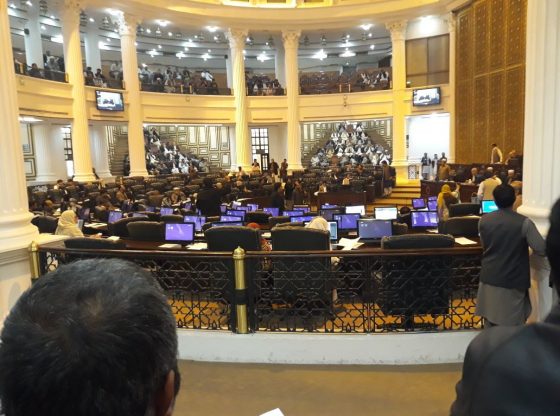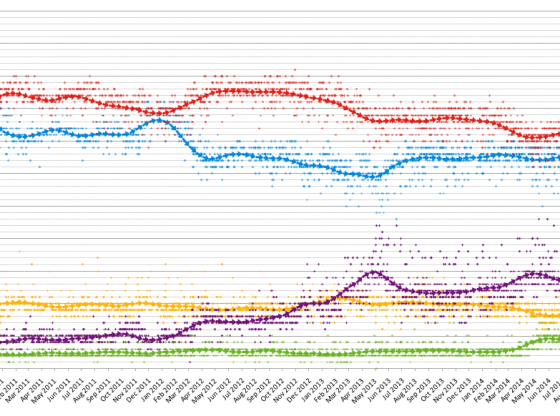Legal Framework of Pakistan’s Election.
By: Abdul Salam
PESHAWAR: Women running for the Khyber Pakhtunkhwa (KP) provincial assembly in the July 25 general election can prove that women in elected office have been more successful than their male counterparts in participation.
Although there are far fewer female members in KP’s assembly, on average they pushed through twice as many resolutions both at the provincial and federal level from 2013 to 2018. This suggests if there had been more women in the assembly, legislators could have gotten more done.
In 2013, after taking control of KP’s local government, Pakistan’s Tehreek-e-Insaf (PTI) party, which means “Movement for Justice,” focused on measuring the quality of local governance. It collected and categorized contributions made by every assembly member during each KP session, and published the results on a website.
This trove of data for the first time allows the public to evaluate individual performance of assembly members. And one thing is clear: Women come out on top.
Even though no female candidates won the popular vote from any party in the 2013 election, they served in 21 seats reserved for women, compared to 100 seats held by men. Despite a common prejudice that women do not perform well in politics and governing — as well as concerns by progressive groups that women’s voices might be marginalized within the assembly — the data prove that women outperform men.
Of 767 times of participations on various resolutions or bills pushed in the assembly during the 2013-2018 period, 617 times of participations were made by men, or 6.1 per male member, compared to 150 by women or 7.1 per female member.
Female legislators tend to sponsor more bills on social issues, including those that address the rights of women and children to education, health and other social protections. However, many of those bills are killed or shelved by the male-dominated assembly.
Bills become laws when passed, while resolutions urge actions by governmental bodies but are not legally binding.
Women dominate in contributions to resolutions
Women lead in proposing local level bills
Women are nearly even with men in proposing bills. Women contributed to 31 bills while men contributed to 164 bills. That means each male legislator contributed on average to 1.64 bills and women 1.47.
Further our research shows that women propose bills that would have a local impact while male legislators are more preoccupied with national legislation. Women are nearly twice as likely than men to propose a provincial level law.
Qoumi Wattan Party drive KP’s women-led legislative success
The analysis of 21 female members of KP’s assembly shows that the Qoumi Wattan Party women sponsor more bills and resolutions than women from any other party. Women from the Pakistan Tehreek-e-Insaf (PTI) female were the least active.
In discussion with reserved seat member Meraj Hamayun Khan, Qoumi Watan Party told News Lens that they had submitted seven others bills in the house but due to none discussion by the members of the house, these were dropped and are still pending. On a question on why there were no participations by female members of PTI ruling party she noted that most of her female colleagues from the opposition were disinterested during assembly sessions and were discouraged by male members from participating. News Lens reached out to nearly all female assembly members from PTI for comment but they either did not respond or declined to comment.
Hamayun Khan added that because of the male dominance in the house and in other positions in the KP’s assembly, most of the time women are prevented from introducing debates on issues they feel are important and men formed a bloc to kill those debates.
ANP male members of the house performing better than other
Our research on data shows that male members of ANP participation is higher on average than males from other political parties and other parties often participate only on select issues. For example, members from the Jamaat-e-Islami Pakistan were most active in using legislation to promote mega projects for infrastructure development.
strong>Women have stronger track record in KP’s assembly
Despite their minority in the KP assembly and low participation of women in the ruling party, female legislators are outperforming men. This suggests that with more women in office, more laws could be passed and implemented, often in interest of increasing social services to citizens at the local level. But due to various reasons well-qualified women are not being elected.
Gulalai Ismail, Founder Aware Girls told News Lens, that no doubt women performed better than male during last ruling tenure despite obstruction efforts by their male counterparts.
Ismail added that practical barriers to women running for office also need to be addressed. To ensure more women participate from all political, fees need to be reduced and parties need to fund the campaigns of women running on their ticket. .
And further, she said, in the absence of a mechanism for reporting and punished cases of sexual harassment, many women are unwilling to take the risk of running. She feels that as long as women feel unsafe in the political sphere, they will not turn out to run in large numbers.
Further she pointed to a practice of referring bills that address women’s rights to the Council of Islamic Ideology (CII), where a conservative interpretation of Islam dominates, for review. So instead of the opposition killing bills outright, many bills sponsored or co-sponsored by women to promote women’s rights are criticized by the CII, which is rarely sent bills to review that touch on other subjects or were proposed by the ruling party.
In KP’s assembly they have approved around eight women specific resolutions, which includes women safety, women participations in political process, and others related to women empowerments in last five years. Further in additions to that women department is now actively work on women related issue and promoting gender equality in KP’s.








